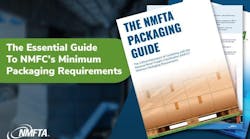A joint study between the American Trucking Assns. (ATA) and sleep research firm Circadian International Inc. concluded that commercial truck drivers need more flexibility to allow drivers to select sleep times and duration than the current hours-of-service (HOS) rule allows.
Based on the study, ATA recommends “greater flexibility for both solo and team drivers who utilize sleeper berths.” The less-flexible 2005 rule resulted in lower productivity and unreasonable sleep patterns compared to the 2003 rule, trucking experts say.
The study found that allowing drivers to choose when and how long to sleep resulted in drivers benefiting from “maximized sleep opportunities,” better alertness and safer operation. The project involved both compliant and noncompliant driving scenarios involving 11 internationally recognized sleep experts and 67 professional truck drivers, ATA said.
“We found a clear consensus in favor of increased flexibility between leading sleep scientists who have studied driver fatigue, and truck drivers who use sleeper berths on a regular basis,” said Martin Moore-Ede of Circadian International. “These are the two groups probably most qualified to judge the impact of the current HOS split sleep and 14-hour clock rules on driver alertness and safety.”
“Motor carriers for decades have safety utilized the flexible sleeper berth provisions to assure drivers obtain needed rest,” said ATA president & CEO Gov. Bill Graves. “Flexibility in the splitting of sleep periods mitigates fatigue and affords inherent protections that are critical for the safety of our drivers and motoring public.”
For additional coverage, read Sleep experts weigh in on HOS.


